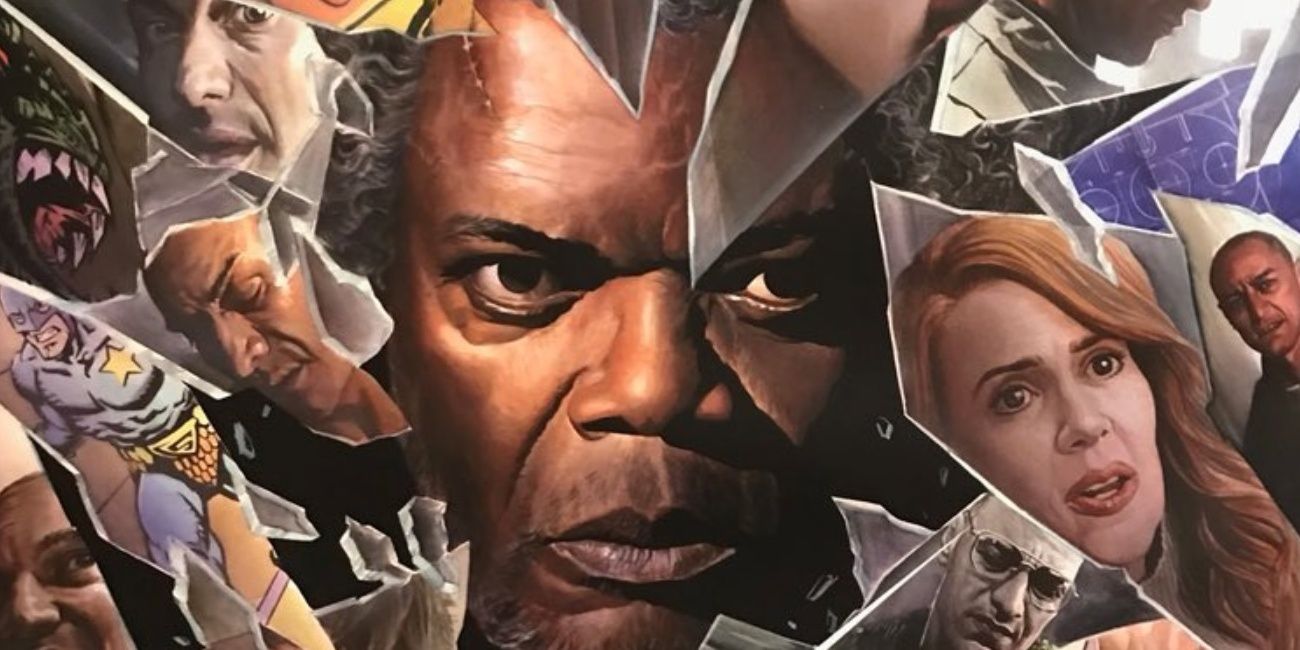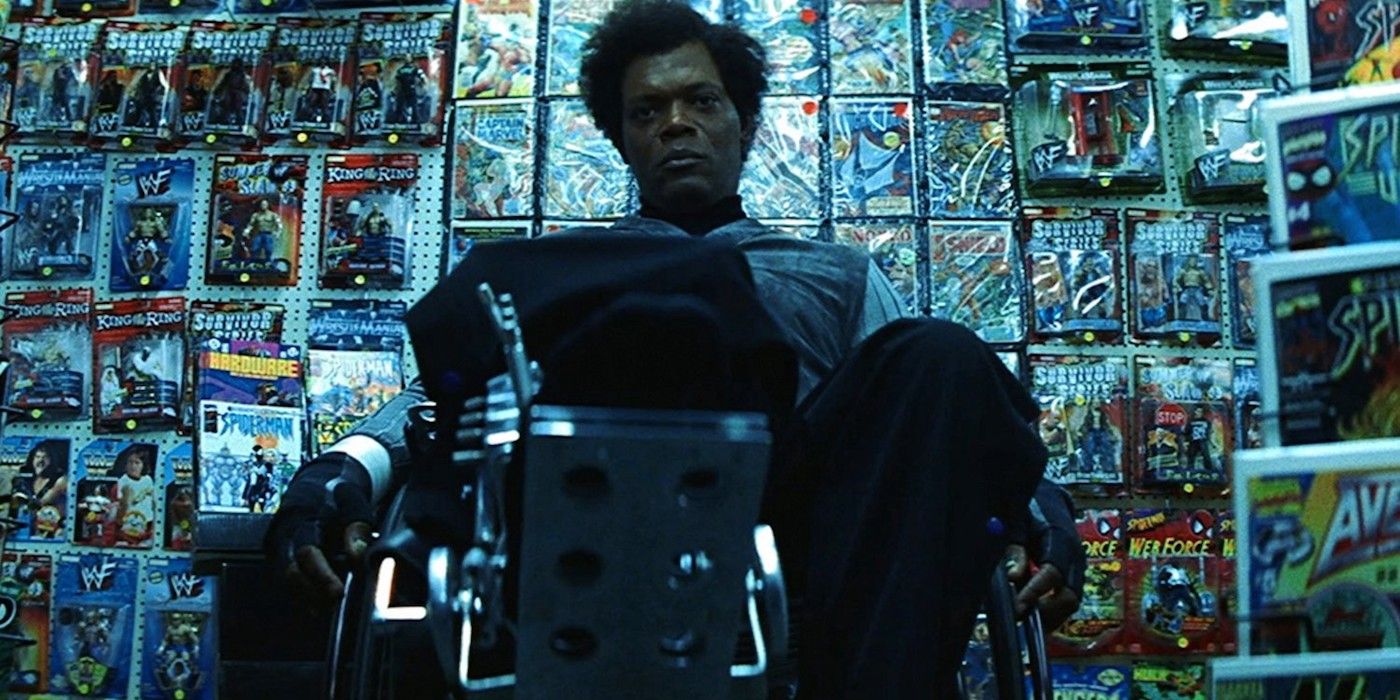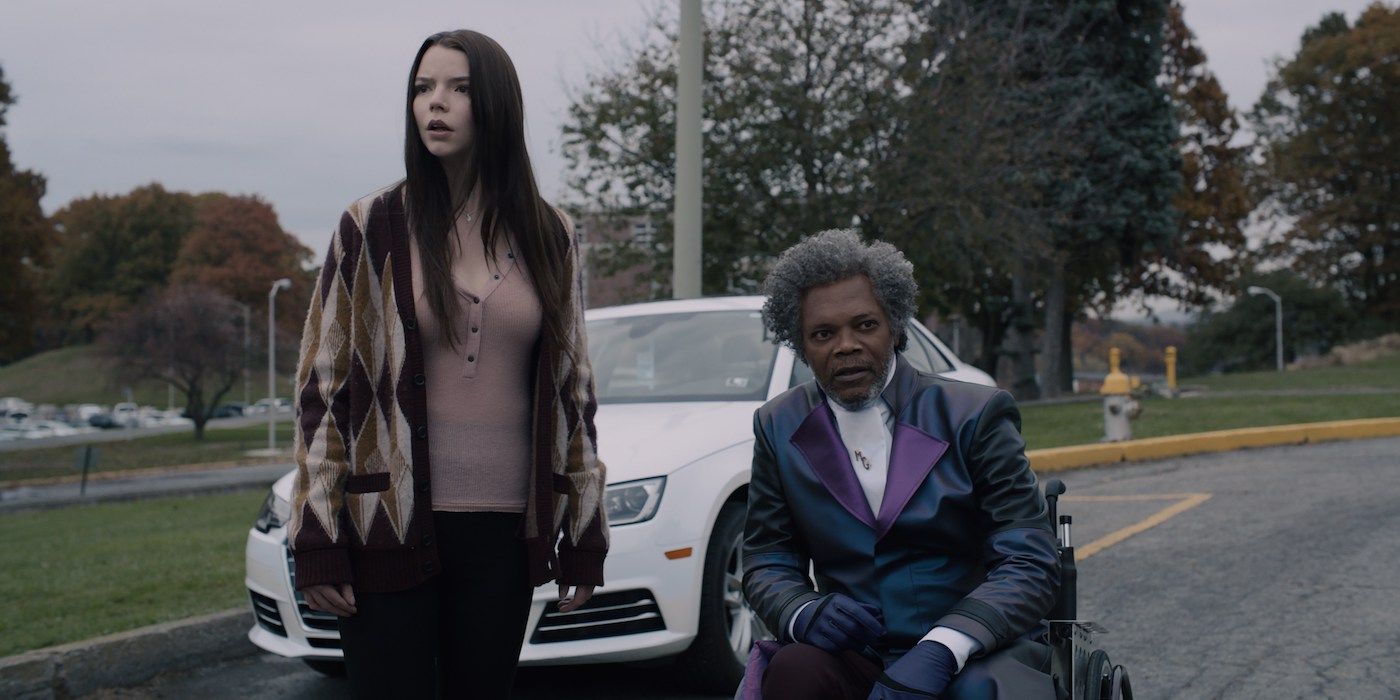WARNING: The following article contains spoilers for M. Night Shyamalan's Glass, in theaters now.
Following the rousing reception to Unbreakable and Split, critics aren't offering the same love to the final chapter in M. Night Shyamalan's superhero trilogy, Glass. As the film pits James McAvoy's Kevin Wendell Crumb (or more specifically, his violent Beast persona) against Bruce Willis' David Dunn, we quickly see that Samuel L. Jackson's Elijah Price is the man pulling the strings, yet again in a nefarious role.
RELATED: The Glass Hospital Has the Worst Nursing Staff In Movie History
Price was the one who caused the train crash in Unbreakable, coming off like a psychopath in his mission to unearth other superhumans. But as sinister as his machinations appear here, by the time the movie ends we come to see he's actually the story's greatest hero, painting an epic tale of redemption.
As flawed as Glass is, the performances by the cast members are spot on. Narrative issues aside, Jackson's Elijah stands out as Shyamalan does a total 180 with the character. In the film, we're left rooting for David to stop Elijah and the Beast as they break out of Ellie's mental facility to go blow up a building and show the world their species is the next step in evolution. Or so Elijah leads us to believe.
When the dust clears, Elijah's true scheme isn't selfish at all, and he's not issuing a public call-to-arms for superhumans across the world. In fact, he never really intended to commit another terrorist act again. All he's trying to do is get as much footage of David and the Beast in a battle of supermen so that he can leak it to the world. Elijah learned his lesson from Unbreakable, where he was carted off as a madman, and decides his genius needs to be implemented differently. It's not just about discovering superhumans, but taking care of them and offering them a community. Using David and the Beast is simply a means to this end.
RELATED: Glass: Shyamalan's Fragile Twist, Explained
Elijah knows Ellie and people like her will try to suppress his kind, and this is the only way to get them to come together and not suffer in solitude anymore. After all, being alone is what drove Elijah to become an evil mastermind, so to prevent others like him from becoming a menace, the first step to unite them. Simply put, he doesn't want his people feeling like outcasts, which is what this mental facility does -- gaslighting them to the point they stop using their abilities.
Elijah orchestrates the entire plot of Glass, albeit with some collateral damage, not only to prove Ellie wrong, but so the world can see his people exist, accept they are here and know they're not necessarily weapons -- some are villains, but people like David are indeed heroes. The movie's ending, where Elijah hijacks the facility's footage after Ellie tried to delete it feels like a mix between Saw's Jigsaw and Watchmen's Ozymandias. While everyone's focused on David, the Beast and a fake terrorist plot, Elijah takes the fall for the greater good as this is all a misdirection, enabling him to seed the footage out.
RELATED: The Glass Wikipedia Entry (Incorrectly) Teases an X-Men Crossover
Transforming from a narcissist and egomaniac to someone caring for those afraid to step into the light, Elijah truly becomes a martyr by the time he dies from a fight with the Beast. He's simply pretending to be a villain today so he can create a better tomorrow. Elijah uses David and the Beast as pawns to help him, as he knows both would never agree to his plot in the first place. And so, by playing them like this, Elijah managed to inspire hope in others like him, as well as the rest of mankind, beckoning them to embrace the concept of the other.
In theaters now, director M. Night Shyamalan's Glass stars James McAvoy as Kevin Wendell Crumb/The Beast, Bruce Willis as David Dunn, Anya Taylor-Joy as Casey Cooke, Samuel L. Jackson as Elijah Price/Mr. Glass and Sarah Paulson as Ellie Staple.



